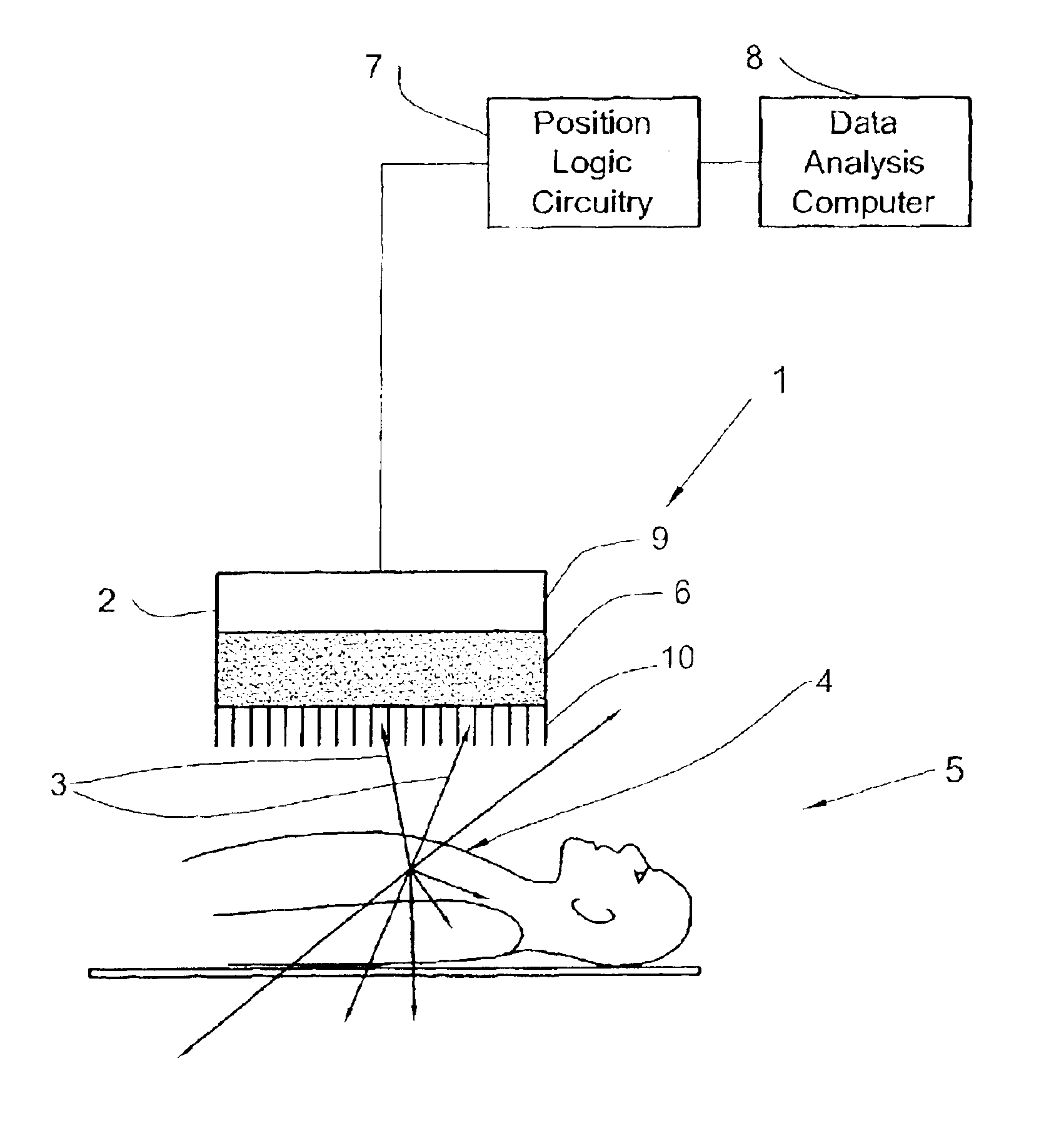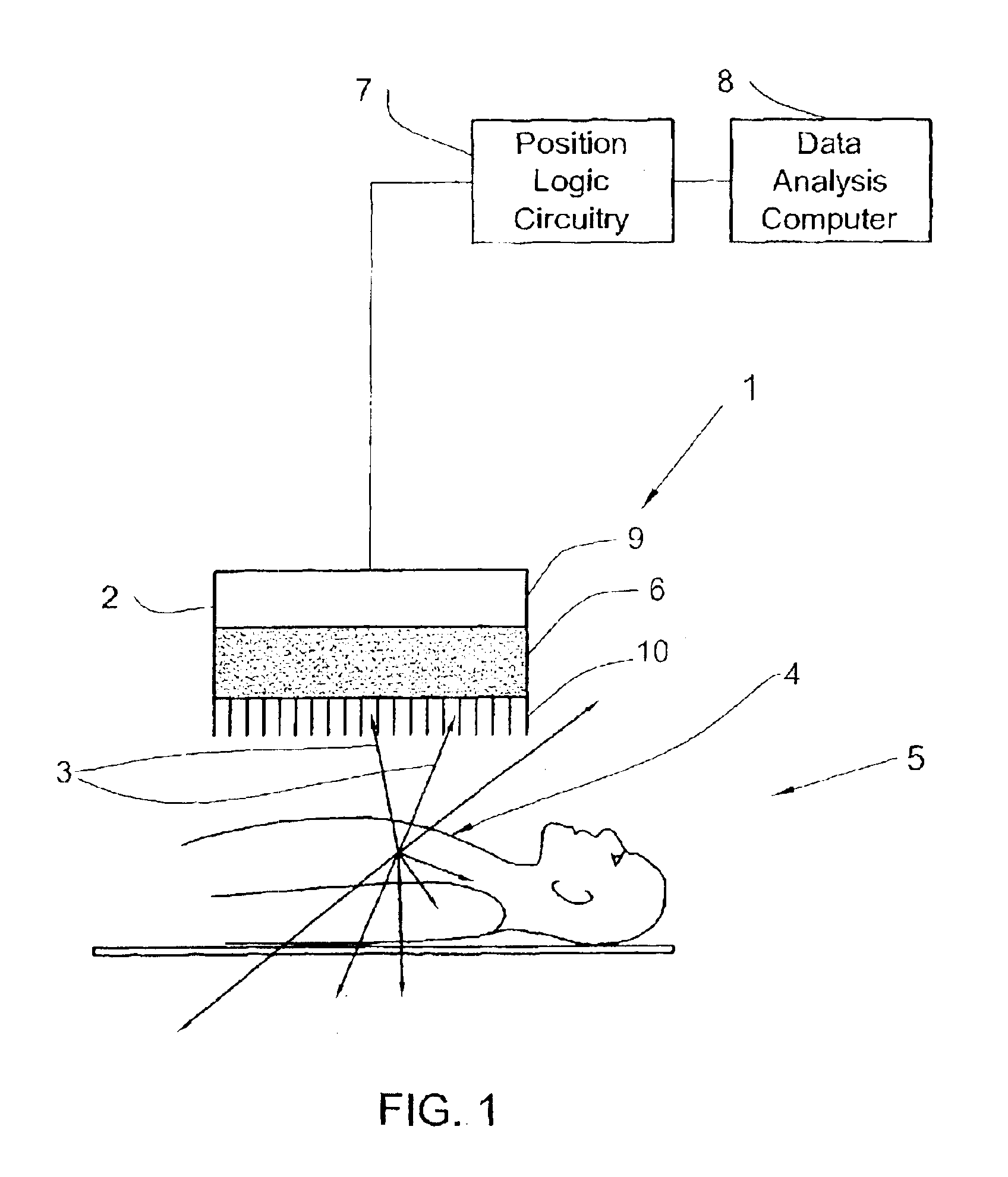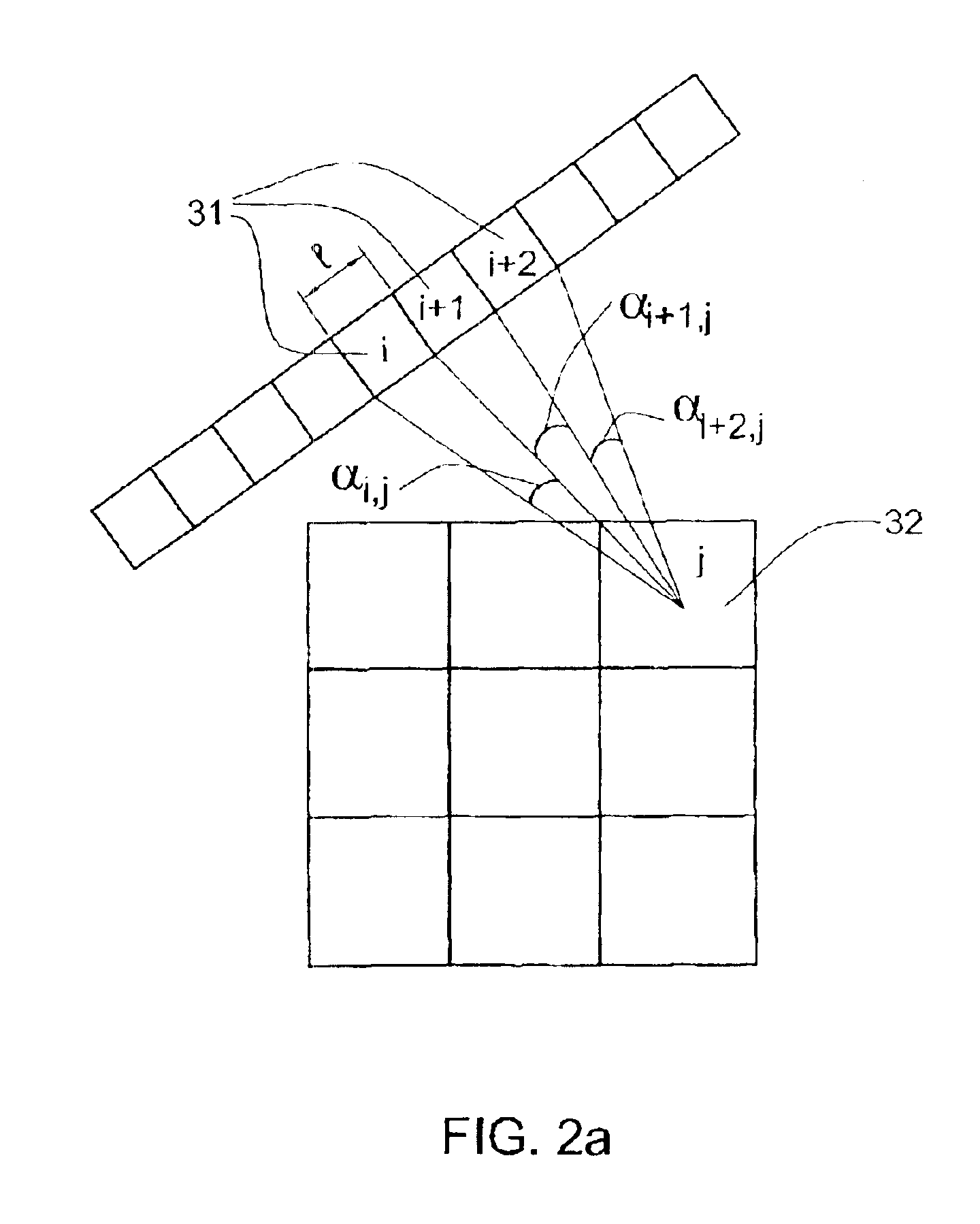SPECT gamma camera
a gamma camera and spectrometer technology, applied in tomography, instruments, applications, etc., can solve the problems of reducing the sensitivity of the collimator, reducing the detection efficiency of collimators, and prolonging the data acquisition time. , the need to administer high doses of radiopharmaceutical substances
- Summary
- Abstract
- Description
- Claims
- Application Information
AI Technical Summary
Benefits of technology
Problems solved by technology
Method used
Image
Examples
Embodiment Construction
[0022]Reference first is made to FIG. 1 depicting a side view of a simplified schematic diagram of gamma camera in accordance with the present invention, for obtaining a SPECT image of a portion of a body that has been administered by a radiopharmaceutical substance which radiates gamma rays.
[0023]The gamma camera 1 comprises a detector 2 mounted above an inspected portion 4 of a body 5, a position logic circuitry 7 and a data analysis computer 8, all connected appropriately.
[0024]Detector 2 includes at least one photon detector crystal 6 facing the portion 4 of body 5. The photon detector crystal 6 may be in the form of a semiconductor crystal or crystals. This crystal(s) may be selected from a first group including Cadmium-Telluride (CdTe), Cadmium-Zinc-Telluride (CeZnTe), Lead Iodine (PbI).
[0025]The detector 2 of the gamma camera 1 may further include at least one photo-multiplier 9. The photon detector crystal(s) in this case may be selected from a second group including Sodium ...
PUM
 Login to View More
Login to View More Abstract
Description
Claims
Application Information
 Login to View More
Login to View More - R&D
- Intellectual Property
- Life Sciences
- Materials
- Tech Scout
- Unparalleled Data Quality
- Higher Quality Content
- 60% Fewer Hallucinations
Browse by: Latest US Patents, China's latest patents, Technical Efficacy Thesaurus, Application Domain, Technology Topic, Popular Technical Reports.
© 2025 PatSnap. All rights reserved.Legal|Privacy policy|Modern Slavery Act Transparency Statement|Sitemap|About US| Contact US: help@patsnap.com



